USB Hub vs. Docking Station: Which is Right for You?
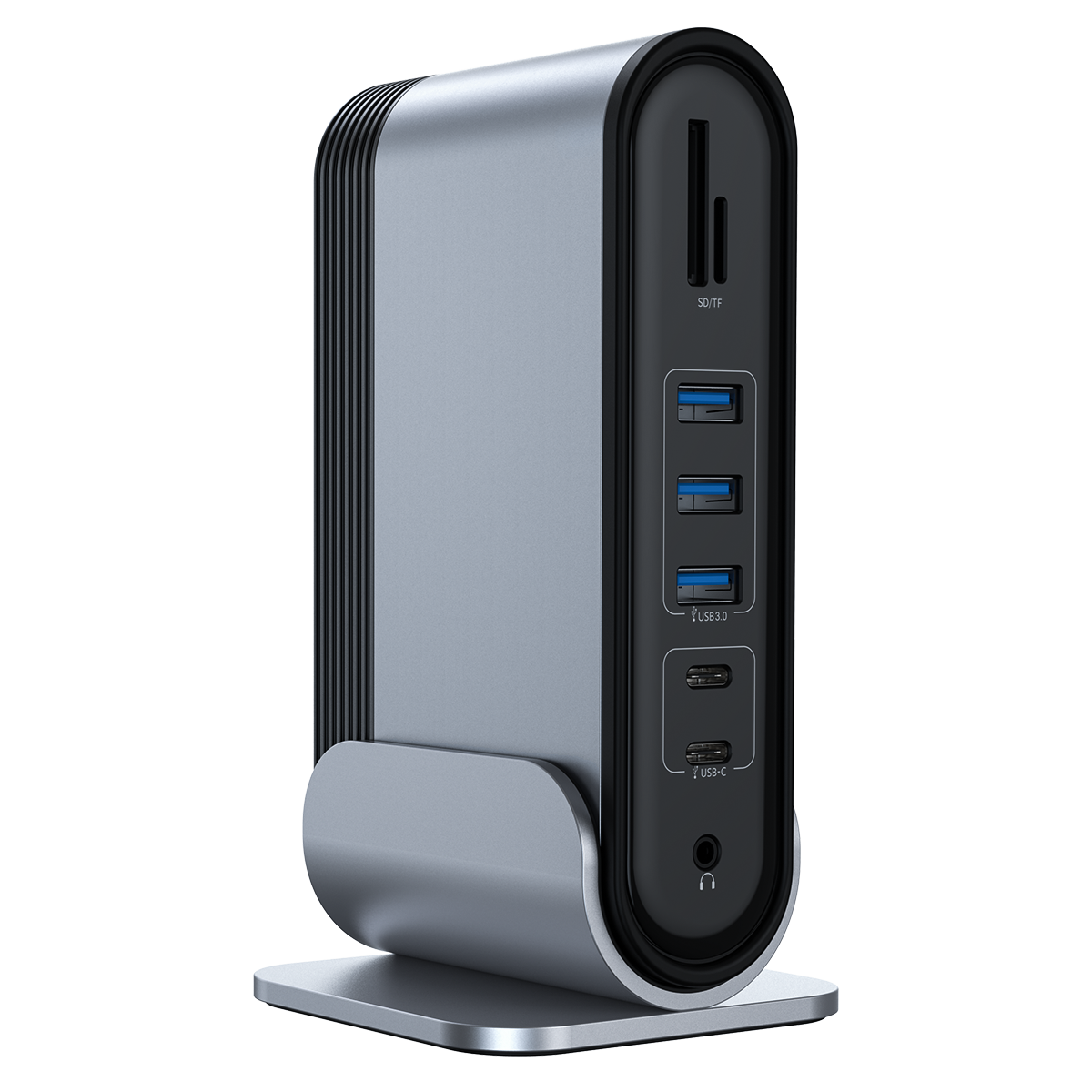
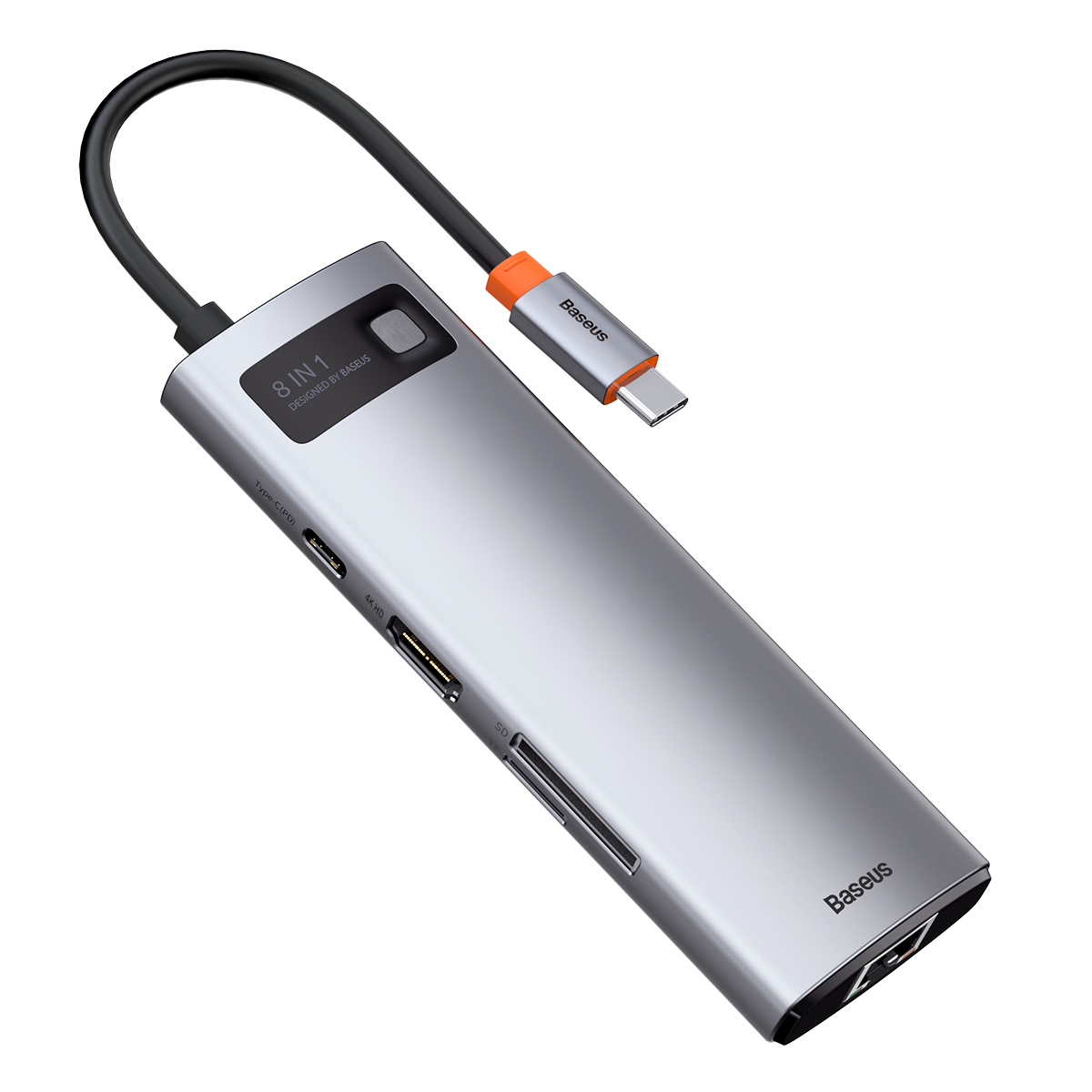
Many of us are using USB hubs and docking stations for our computers, especially for laptops. Sometimes, people use USB hubs and docking stations interchangeably, since they have similar functionality and appearance at first glance.
With these similarities, it might be confusing to choose which is right for you. No worries! We will discuss USB hubs and docking stations and the factors you need to consider so you can choose the one that best suits your needs.
What is a USB Hub?
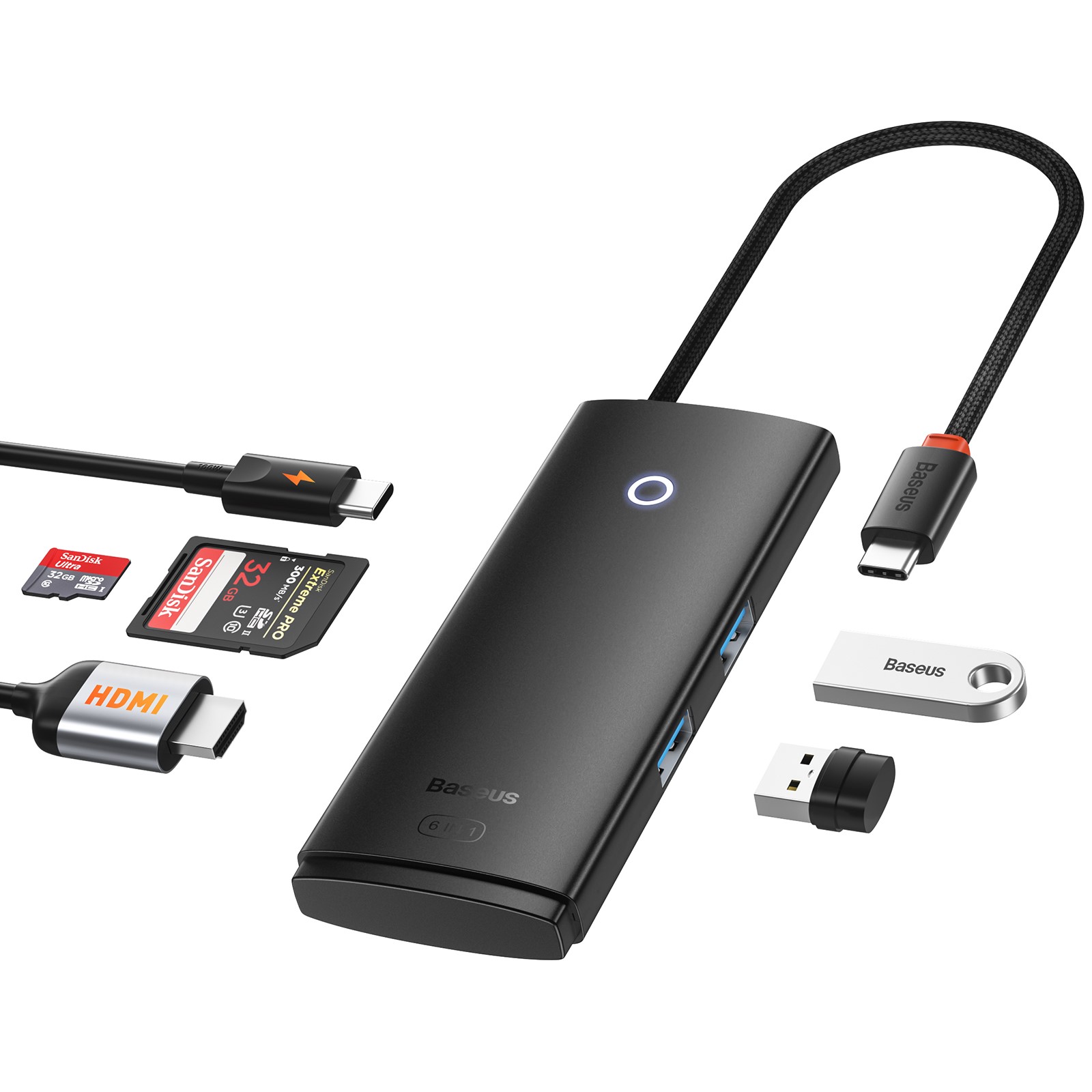
Laptops typically have fewer ports than desktop computers. This is where USB hubs come in handy. A USB Hub is an accessory used for extending additional ports so you can plug more devices to your computer. Typically, it comes with USB-A ports that connect peripherals like keyboard, mouse, and flash drive. There are also other hubs with Ethernet ports, HDMI, and even USB-C ports as an upgrade.
What is a Docking Station?
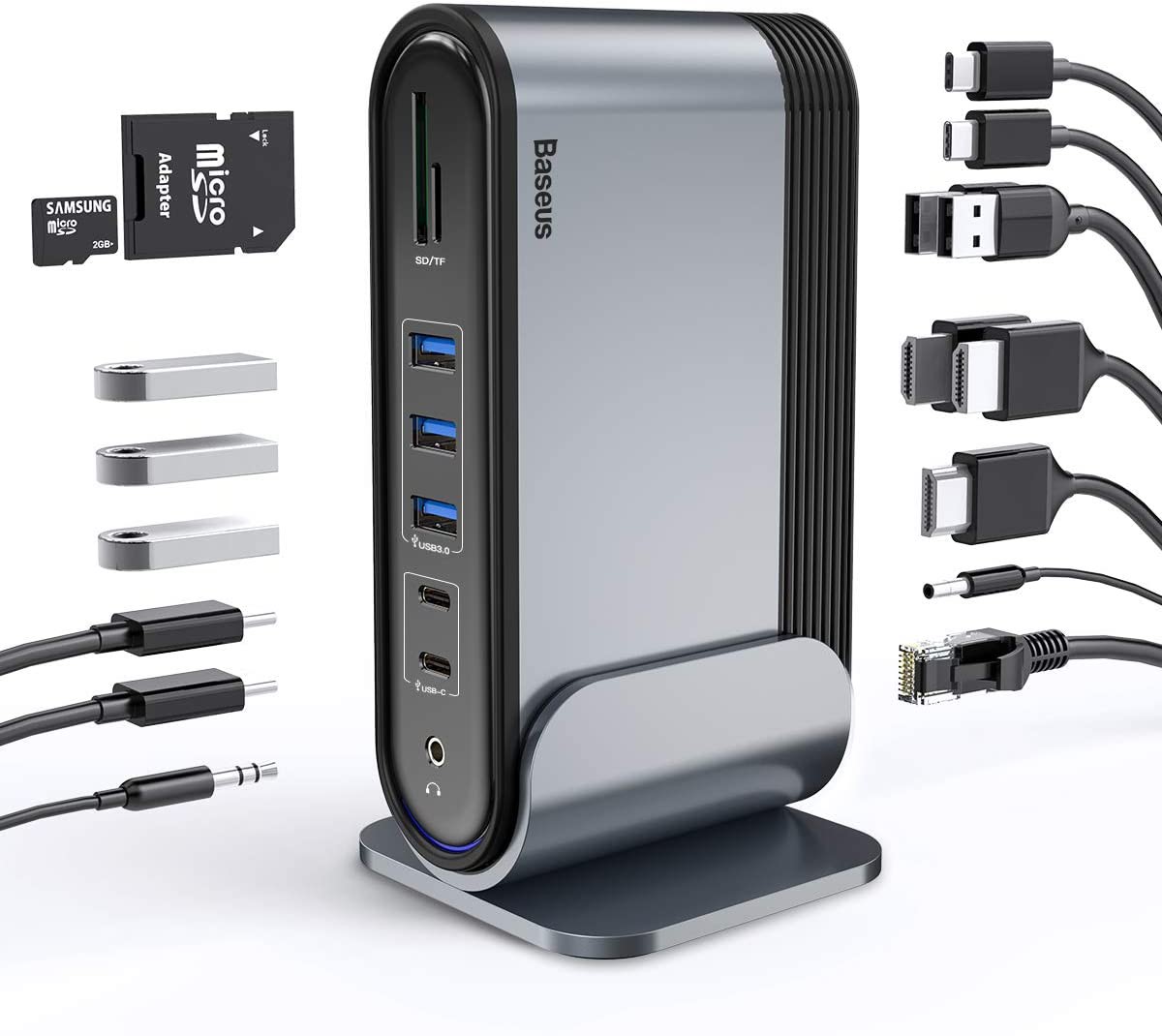
Similar to a USB Hub, a Docking Station is primarily used to connect multiple devices. It is best used when you wish to convert your laptop into a workstation. Docking stations are a great option for those who wish to convert their laptops into a workstation, since it has a variety of ports that also enable you to connect multiple displays, as opposed to a USB-hub. There are USB-C docking stations, where it holds USB-C ports that many devices cater to these days.
Get Baseus Docking Stations here!
USB Hub vs. Docking Station: Which is Right for Your Needs?
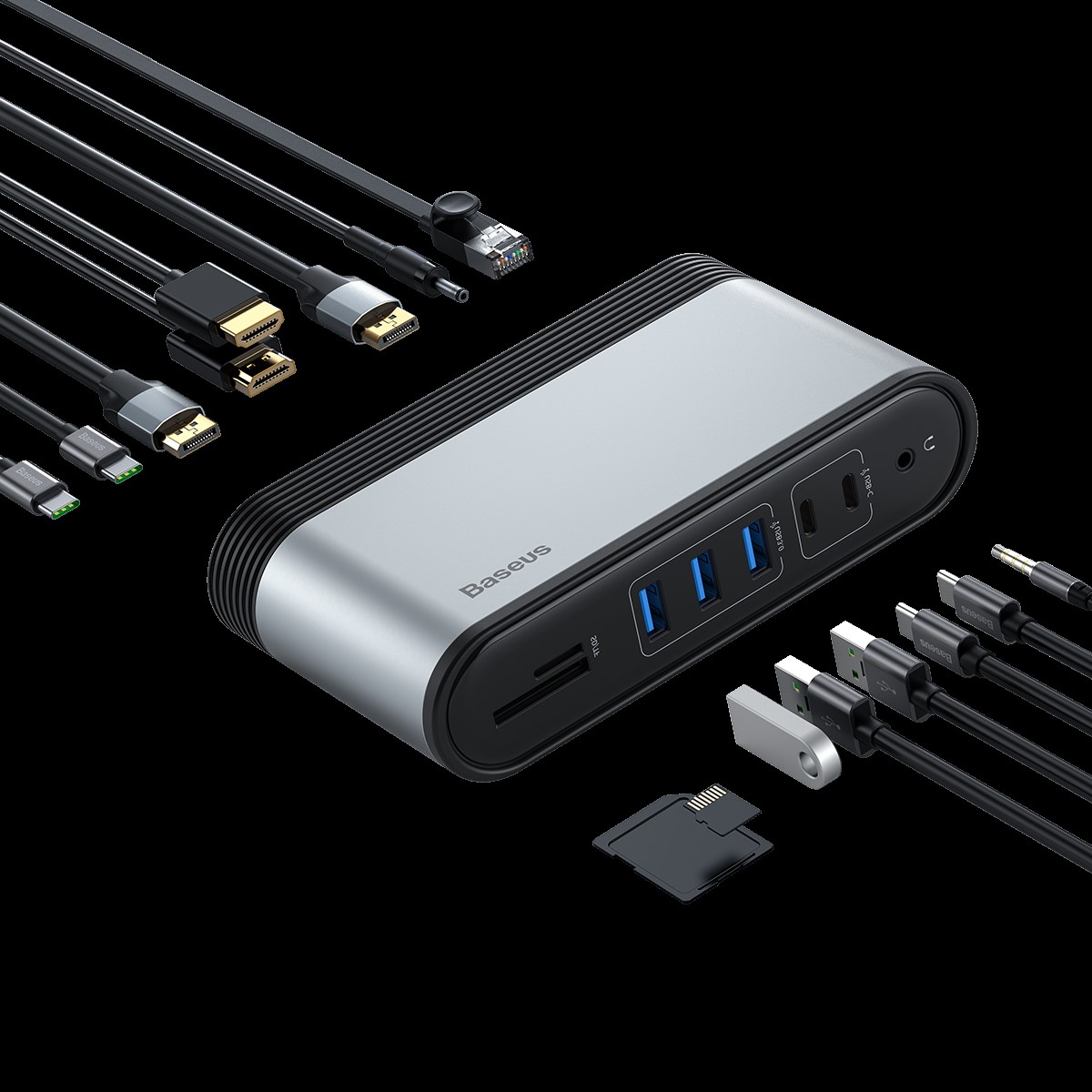
So, you’re thinking about using a USB hub or a docking station. The former is more sleek, lightweight, and portable. Meanwhile, the latter is typically for stable office or workstation setups. But which of these two is right for your needs?
There are several factors you need to consider. Check out which would be best for you.
1. Adding additional monitor
Depending on the nature of your work and how you will use your screen, you would need an additional monitor. Who doesn’t want a dual screen setup? You can simultaneously do different tasks and open multiple windows for yourself in this setup.
If you plan to add another monitor to your current display, you would need a docking station instead of a USB hub. A high-quality docking station can enable your multiple display PC setup. Only get this from reliable and trusted brands like Baseus, offering 16-in-1 and 17-in-1 that caters to three or more displays at a time.
2. Variety in connectivity ports
Both docking stations and USB hubs offer multiple ports. On one hand, USB hubs have three or more ports, and on the other hand, a universal hub docking station typically has five or more port options.
They are still similar if we are talking about its ability to cater to USB-A ports. What sets them apart is the variety of ports they carry.
A USB hub typically has a USB-A interface, as well as its other versions such as USB 3.0, USB 3.1, USB 3.2, etc. This is typically used for connecting peripherals like mouse, keyboard, or flash drive.
Meanwhile, docking stations have other ports such as HDMI, VGA, DisplayPort, USB-C, among others. It also connects external monitors, peripherals, SD, and Micro SD cards.
3. Topnotch resolution
A portable docking station plays a vital role in dual or triple screen setups. Today’s latest docking stations are capable of supporting high definition (HD), 3D, 4K, and even 8k resolutions. It also supports different screen modes, namely extend and mirror mode. The extend mode can help you expand your display, and the mirror mode duplicates your screen as it is. Both modes keep the resolution crisp and rich.
4. Charging of devices
When it comes to device charging, universal hubs are helpful. Both the USB hub and docking station support charging features. The only difference is USB hubs have a charging cable with a USB-A connector, while docking stations help power laptops and newer smartphones with its USB-C PD charging port and USB 3.0 port.
USB hubs can charge more than two devices such as smartphones, tablets, iPods. Docking stations have limited charging ports compared to USB hubs.
5. Audio support
You can connect your speakers through the auxiliary port of docking stations. Unfortunately, USB hubs don’t typically have this port. Docking stations win this category since most will definitely have one.
6. Wired internet
Despite WiFi internet, many companies and users still prefer using wired internet connection. After all, plugged-in internet offers more stable and faster speeds, compared to WiFi. However, recent laptop models do not have Ethernet ports anymore.
In this case, you can use a docking station for your LAN connection. While some USB hubs also have an Ethernet port, it’s still unusual to see them in the market. Hence, the best choice would be a docking station.
Get Baseus USB Hubs and Docking Station
If you’re looking for high-quality, reliable, and durable USB hubs and docking stations, Baseus got it for you.
Baseus is a brand at the forefront of innovation to smartphone and computer accessories. Our roster of USB hubs and docking stations offer convenience and efficiency.
Check out our variety of Baseus 5-in-1, 6-in-1, and 8-in-1 USB hubs!
Check out our variety of Baseus 11-in-1, 16-in-1, and 17-in-1 Docking Station!
Found this article useful? Make sure you sign up to Baseus' newsletter for more tips, how-tos, exclusive deals, and discounts!






